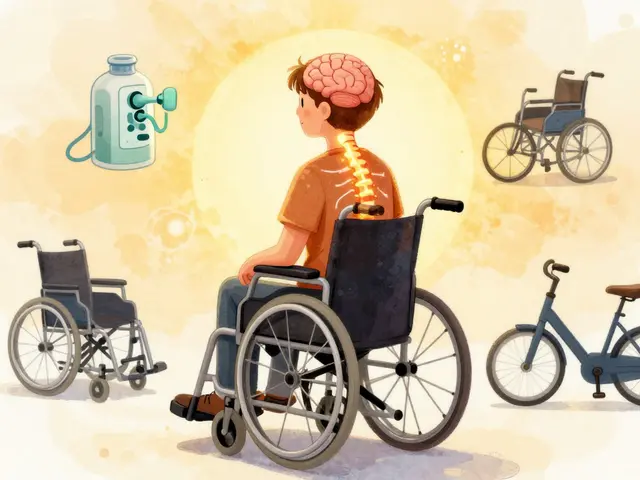Cancer Immunotherapy: Harnessing the Body’s Defenses to Fight Cancer
When exploring cancer immunotherapy, a treatment approach that uses the body's immune system to target and destroy cancer cells. Also known as immune‑based cancer therapy, it has reshaped how doctors think about oncology. The field brings together several tools: checkpoint inhibitors, drugs that block proteins preventing T‑cells from attacking tumors, CAR‑T therapy, a personalized cell treatment where a patient’s T‑cells are engineered to seek out cancer, and cancer vaccines, substances that train the immune system to recognize tumor‑specific markers. These approaches share a core idea: boost the immune response while limiting the tumor’s ability to hide. cancer immunotherapy therefore isn’t a single drug but a collection of strategies that work together to outsmart cancer.
Why Understanding the Tumor Microenvironment Matters
The success of immunotherapy depends on the tumor microenvironment, the neighborhood of cells, blood vessels, and signaling molecules surrounding a tumor. When the microenvironment is hostile to immune cells, even the most potent checkpoint inhibitor may fall short. Researchers measure factors like PD‑L1 expression, tumor‑infiltrating lymphocytes, and cytokine levels to decide which therapy fits best. In practice, doctors often combine immunotherapy with radiation, chemotherapy, or targeted drugs to reshape that environment and make it more permissive for immune attack. This combination therapy influences treatment outcomes and reduces the chance of resistance developing over time.
Patients also need to navigate side‑effects that differ from traditional chemotherapy. Immune‑related adverse events can affect the skin, gut, liver, or endocrine system, requiring close monitoring and sometimes steroids to calm an over‑active immune response. Knowing the signs early—rashes, diarrhea, or unusual fatigue—helps keep therapy on track. Many clinics now offer dedicated immunotherapy safety programs to educate patients about these risks and provide rapid support.
Finally, the landscape keeps evolving. New checkpoint targets like LAG‑3 and TIM‑3 are entering trials, while next‑generation CAR‑T cells aim to treat solid tumors, not just blood cancers. Clinical trial databases update weekly, and regulatory agencies worldwide are fast‑tracking approvals for promising candidates. For anyone interested in staying current, checking trial registries, FDA announcements, and reputable oncology news sources gives a realistic sense of what’s on the horizon.
Below you’ll find a curated list of articles that dive deeper into each of these topics—practical buying guides for related medicines, safety tips for managing side‑effects, and the latest research breakthroughs. Whether you’re a patient, caregiver, or healthcare professional, the collection provides actionable insights to help you make sense of the fast‑moving world of cancer immunotherapy.
27
Immunotherapy's Impact on Carcinoma Treatment: Current Strategies and Future Directions
Explore how immunotherapy reshapes carcinoma care, from checkpoint inhibitors to CAR‑T cells, biomarkers, combos, and regulatory updates in a clear, practical guide.
Latest Posts
Popular Posts
-
 Meniere’s Diet: How Sodium Restriction and Fluid Balance Reduce Vertigo and Hearing Loss
Meniere’s Diet: How Sodium Restriction and Fluid Balance Reduce Vertigo and Hearing Loss
-
 Accidental Pediatric Medication Overdose: How to Prevent It and What to Do If It Happens
Accidental Pediatric Medication Overdose: How to Prevent It and What to Do If It Happens
-
 Enteral Feeding Tube Medication Safety: Compatibility and Flushing Protocols Explained
Enteral Feeding Tube Medication Safety: Compatibility and Flushing Protocols Explained
-
 Spinal Cord Injury: Understanding Function Loss, Rehabilitation, and Assistive Devices
Spinal Cord Injury: Understanding Function Loss, Rehabilitation, and Assistive Devices
-
 Magnesium Supplements and Osteoporosis Medications: What You Need to Know About Timing
Magnesium Supplements and Osteoporosis Medications: What You Need to Know About Timing



